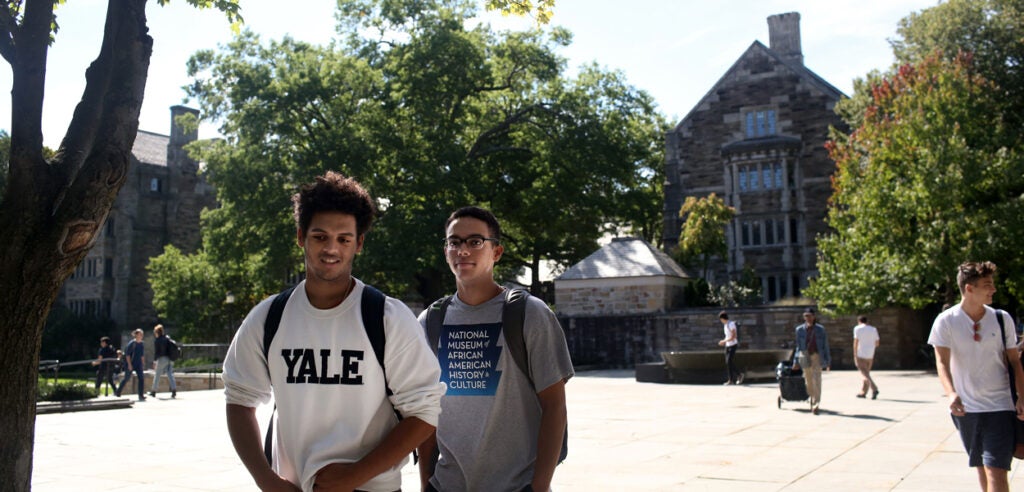The Trump administration’s Justice Department just took an important step in enforcing the Constitution when it concluded, after a two-year investigation, that Yale University illegally discriminates against Asian and white Americans through its admissions process.
This finding alone won’t solve all the problems we have created through racial preferences, but it starts us down the right path.
The Justice Department announced Thursday following the probe by its Civil Rights Division that Yale’s undergraduate admissions process is “in violation of Title VI of the 1964 Civil Rights Act.”
The DOJ announcement did not mention that discrimination based on race in admissions, hiring, housing, etc., also violates the equal protection clause of the Constitution’s 14th Amendment. It eventually will be up to the Supreme Court to reverse some of its prior misguided rulings that race can be used as a factor in these actions
In the meantime, we get a breath of fresh air in Assistant Attorney General Eric Dreiband’s comment: “Unlawfully dividing Americans into racial and ethnic blocs fosters stereotypes, bitterness, and division.”
We also agree with him when he says, “It is past time for American institutions to recognize that all people should be treated with decency and respect and without unlawful regard to the color of their skin.”
The Justice Department announcement did not touch the Supreme Court’s 1978 Bakke decision, which has served as the underpinning for racial preferences. While acknowledging that “the Supreme Court has held that colleges receiving federal funds may consider applicants’ race in certain limited circumstances as one of a number of factors,” DOJ concluded that Yale’s use of race is “anything but limited.”
The decision is a great start, but obviously more needs to be done. The high court in Bakke held that universities could not use racial quotas to make up for past discrimination, leaving supporters of the right of all Americans to be treated equally thinking they had won a victory.
But Justice Lewis Powell, who wrote the controlling opinion in the 4-4-1 decision, said race could be considered in combination with other factors, because “achieving a diverse student body is sufficiently compelling to justify consideration of race in admissions decisions under some circumstances.”
Under this rubric, race has been used in university admissions ever since.
The Justice Department said Thursday, for example, that at Yale, “the great majority of applicants, Asian Americans and whites, have only one-tenth to one-fourth of the likelihood of admission as African American applicants with comparable academic credentials. Yale rejects scores of Asian American and white applicants each year based on their race.”
The impetus to use race when making hiring and promotion decisions in the private and public sector came about as a result of the effort to end segregation and other forms of blatant discrimination during the civil rights era.
President John F. Kennedy’s executive order in 1961 (No. 10925) instructed federal contractors to take “affirmative action to ensure that applicants are treated equally without regard to race, color, religion, sex, or national origin.”
Kennedy’s successor, Lyndon Johnson, however, soon turned this policy on its head. “Affirmative action” came to mean the opposite: making hiring, contracting and housing decisions with regard to race, sex, and national origin.
As Christopher Caldwell argues in his new book, “The Age of Entitlement,” this shift has “wrought a change in the country’s constitutional culture.”
These new discriminatory measures were “not just a major new element in the Constitution,” Caldwell writes. “They were a rival constitution, with which the original one was frequently incompatible.”
Today, some of the most important voices in the hard-left movement that has become so powerful in 2020 are openly calling for discrimination. In his bestseller “How to be Anti-Racist,” Ibram X. Kendi, director of Boston University’s Center for Anti-Racist Research, writes: “The only remedy to racist discrimination is anti-racist discrimination. The only remedy to past discrimination is present discrimination.”
It is time to start enforcing our laws in a colorblind fashion. The Justice Department rightly quoted the abolitionist and orator Frederick Douglass who said in 1890 that the “business of government is to hold its broad shield over all and to see that every American citizen is alike and equally protected in his civil and personal rights.”
These are the ideals we need and to which we must return. The DOJ decision gets us started on that journey.
